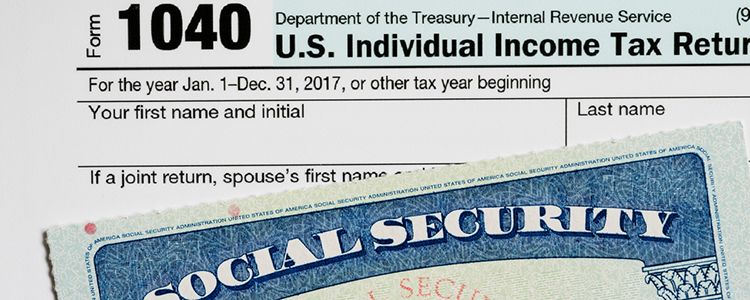This article is about Is Life Insurance Payout Taxable. Assuming your policy’s payout causes your estate’s worth to surpass $12.06 million, your main beneficiaries may be charged estate taxes. Your beneficiaries could pay taxes in the event that they decide to get the payout in installments, or on the other hand assuming the policy is claimed by an outsider. Generally, life insurance payouts are not taxable. Yet, on the off chance that you are a beneficiary, don’t start spending the cash in your head at this time.
A few situations can lead to taxation, particularly in the event that you earn interest on the proceeds or the policy proprietor had a high total assets. Understanding how and when these taxes apply can assist you with avoiding any surprises.
Life insurance death benefits aren’t typically taxed, which is one of the primary potential gains to life insurance. Since life insurance death benefits can be in the large numbers of dollars, it’s a significant advantage to buying (and receiving) life insurance.

Are life insurance payout taxable?
You may ponder, “Is life insurance taxable?” The IRS states that proceeds from a life insurance policy are not generally thought to be gross income for the beneficiary. Nonetheless, there are exemptions. For example, interest got by a beneficiary because of the insured’s death should be accounted for as income. A beneficiary may also have to report a portion of the payout as taxable income in the event that they get it in exchange for cash or something else of valuable consideration, up to the total amount of what was consumed.
When the payout comes in installments instead of a lump sum
There are two ways the benefit can be paid — as a single lump sum or in installments. Certain individuals like to get cash over the long run to avoid spending everything. However, they should know that the interest is taxable.
A digital life insurance brokerage explains, “If the payout is paid in installments, the interest that accrues on the payouts is taxable. The death benefit is not taxable, just the interest on installments.”
What should you do with life insurance proceeds?
There is no set rule about what you should do with your life insurance proceeds. It very well might be tempting to go on a spending binge when you initially get the cash, however putting off spending for some time and consulting with a financial advisor may be a wise decision.
Thomas D. Currey, proprietor of TDC Financial Administrations in Grand Prairie, Texas, and chair of the board of directors of the nonprofit Life Happens, warns individuals to be careful with their recently acquired windfall. “The single word of caution I’d have is that when anyone comes into a large sum of cash, it’s easy to spend first and ask questions later,” Currey says. “Seeking insight to assist you with assessing what your ongoing requirements are and how to make it go as far as conceivable is always smart.”
Interest Income
Income earned in the type of interest is almost always taxable sooner or later. Life insurance is no special case. This means when a beneficiary gets life insurance proceeds after a time of interest accumulation rather than immediately upon the policyholder’s death, the beneficiary should pay taxes, not on the whole benefit, but rather on the interest
Estate and Inheritance Taxes
One unfortunate decision that investors appear to much of the time make is to name “payable to my estate” as the beneficiary of a contractual agreement. For example, an individual retirement account (IRA), an annuity, or a life insurance policy.
Nonetheless, when you name the estate as your beneficiary. You take away the contractual advantage of naming a real individual and subject the financial item to the probate interaction. Leaving things to your estate also increases the estate’s value. And it could expose your main beneficiaries of exceptionally high estate taxes.

Tips to Avoid a Life Insurance Benefit Tax
Using a Possession Transfer to Avoid Taxation
Federal taxes won’t be expected on many estates. The basic rejection amount for an estate for a decedent that passed away in 2022 is $12.06 million. And the prohibition amount for 2023 is $12.92 million. The top level tax rate is capped at 40%.
Using Life Insurance Trusts to Avoid Taxation
A second way to eliminate life insurance proceeds from your taxable estate is to create an irrevocable life insurance trust (ILIT). To finish a proprietorship transfer, you cannot be the legal administrator of the trust. And you may not retain any freedoms to renounce the trust. In this case, the policy is held in trust. And you will as of now not be viewed as the proprietor. Therefore, the proceeds are not included as part of your estate.
Why pick trust proprietorship rather than transferring possession to another individual? One reason may be that you actually wish to maintain some legal command over the policy. Or on the other hand perhaps you are afraid that an individual proprietor may fail to pay charges. Whereas in the trust, you can guarantee that all expenses are paid expeditiously. In the event that the beneficiaries of the proceeds are minor kids from a past marriage. An ILIT will allow you to name a confided in family part as legal administrator to handle the cash for the kids under the details of the trust document.
Is the Cash Value in a Life Insurance Policy Taxable?
In the event that you have a cash value life insurance policy. You can generally access the cash through a withdrawal. A loan or by surrendering the policy and ending it.
One reason to purchase cash value life insurance is to have access to the cash that develops within the policy. When you pay expenses, the payments generally go to three places: cash value. The expense to insure you and policy charges and charges. Cash within the cash value account develops sans tax. Based on the interest or investment gains it earns (depending on the policy). However, when you withdraw the cash, you could face a tax bill.
